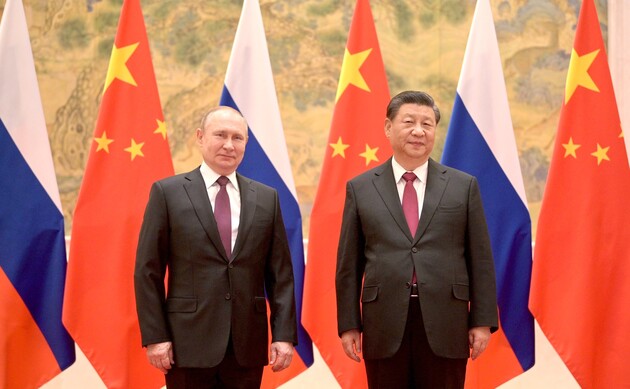The three-day stay of Chinese President Xi Jinping in Russia was accompanied by a mass of rumors and gossip spread in the world media by both supporters and opponents of expanding contacts between Moscow and Beijing. The first experts spoke about the possibility of reaching agreements in principle between the Russian Federation and the People’s Republic of China in the context of confronting the «collective West». The second analysts argued that Comrade Xi would become a kind of peacemaker capable of ending the war in Ukraine. In the end, everyone was wrong.
It should be noted right away that during Xi Jinping’s visit to Russia, not a single document of any interest on the scale of geopolitics was signed. «In this case, we can only talk about a symbolic manifestation of friendship between the Russian Federation and China», – an American political observer William Connolly said in a commentary to a EURO-ATLANTIC UKRAINE correspondent. – «Here and now, one thing can be said: neither before nor after the arrival of the Chinese leader in Moscow, the situation on the fronts of the Russian-Ukrainian war will not change radically».
What if it changes? – some Asian publications asked. And they themselves answer this question. «Xi Jinping’s visit to Russia just became another milestone in a series of contacts between the two countries – South Korean television said in an analytical report. – Do not underestimate the prospects of such contacts. Both Russia and China are members of the UN Security Council, their leaders have every right to discuss geopolitical issues with subsequent resolutions on Ukraine in particular and on regional political and economic issues in general».
Everything is possible. First of all, Xi Jinping once again made it clear that it is China that can mediate in the likely peace talks on Ukraine. Furthermore. «Comrade Xi» announced Beijing’s intention to cooperate with Russia in the transition of the Russian Federation and China to pay for bilateral trade transactions in Chinese currency, as well as the use of the yuan as the main means of payment for economic transactions within the BRICS structures (Brazil, Russia, India, China , South Africa).
«To what extent these prospects are real, no one can say with accuracy», – said European analyst Alexander Mitz. – One thing is clear: the world did not learn anything new from the visit of the leader of China to Moscow. We will waiting for news».


